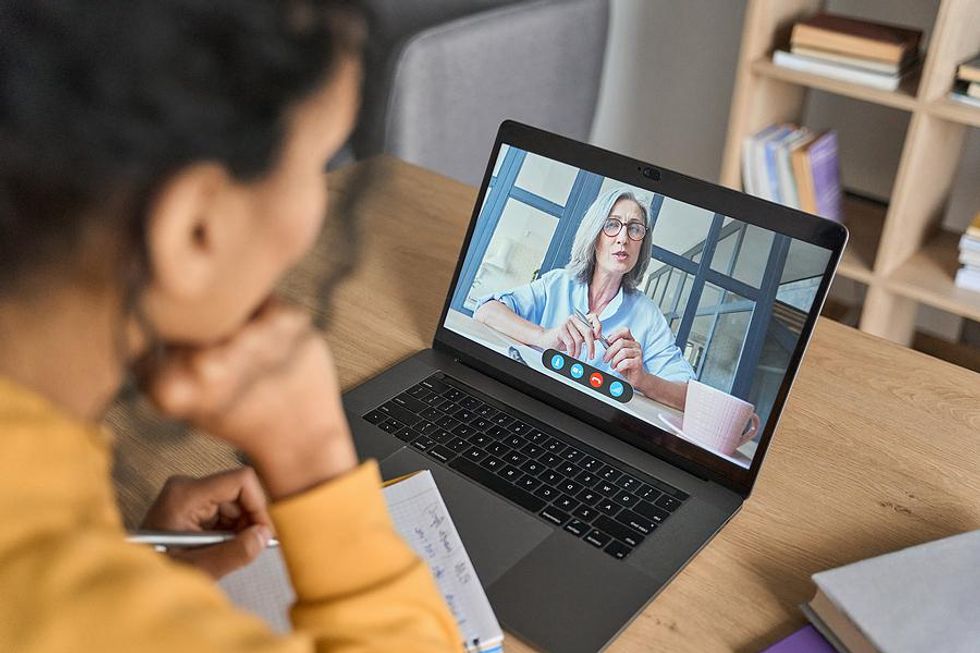In mid-June, in the Leadership Table Talk Series, I had the privilege of interviewing Colin Corby—my friend, technologist, and CEO of Technology Wellbeing LTD, who over the last 20 years has been very studious of the influence of technology in the psychology of the mind, and where this might lead us. In this article, I summarize the key nuggets from our discussion.
In recent years, the world of work has been buffeted by powerful winds of change. From the rapid advancement of technology to the unexpected consequences of a global pandemic, businesses and their employees face a landscape that’s shifting beneath their feet. The culmination of these factors creates what some may term a "perfect storm." The question is how do we navigate through it?
An Unsettling Landscape
The COVID-19 pandemic catapulted organizations into the future, forcing them to adapt quickly to remote and hybrid work models. While this pivot provided immediate solutions, it unearthed the fragility of our global economic structure. Such fragility was only exacerbated by global events like the war in Ukraine.
And just as the dust seemed to settle, newer challenges arose. Environmental, social, and governance (ESG) regulations, demographic shifts in the workplace, a mass exodus of experienced professionals (often termed the "Great Resignation"), and increasing reports of employee burnout became prominent. Toss in the projection by the World Economic Forum that by 2025 machines will equally share work tasks with humans, and it's clear: the future of work is daunting.
What’s the toll on employees? A 2021 Deloitte report pinpoints a surge in burnout, absenteeism, presenteeism, and labor turnover. The more ominous insight? An overwhelming feeling of isolation pervades 40% of U.S. workers.
Digital Culture: Logic Or Magic?

Bigstock
In this tumultuous scenario, the emphasis on digital culture cannot be overlooked. But what is it? Simply put, it's the intersection of technology, leadership, and employee interaction within an organization. With disruptive technologies constantly emerging, it's vital for organizations to ensure that their evolving digital culture aligns with core values.
Why does this matter? Three primary reasons:
- Alignment with Organizational Values: Neglecting digital culture can result in a misalignment between an organization's core values and the behaviors adopted due to disruptive digital transformations.
- Preserving Connections: Digital transformation has the potential to rupture the essential connections between employees. In an era of remote work, it's vital to restore and strengthen these networks.
- Futureproofing: As technology takes on a more significant role, its interactions with humans will play a pivotal part in shaping an organization's culture.
Ethical/Human Digital Transformation™: The Road Ahead
 Bigstock
BigstockAs we brace for the future, we believe the answer lies in what we term Ethical/Human Digital Transformation™. This concept revolves around three pillars:
- Connectedness: In an era defined by loneliness, organizations need to foster genuine connections among employees. This goes beyond virtual meetings and entails a deep sense of shared purpose and mutual respect.
- Autonomy: Employee autonomy is pivotal. Organizations need to ensure that their systems and tools empower employees rather than constrain them.
- Flexibility: The future is uncertain. Ensuring that both the organization and its employees are adaptable is key to navigating unexpected challenges.
Embracing AI, But Retaining The Human Touch
 Bigstock
BigstockWhile AI promises a boost in GDP and efficiency, it also brings forth challenges. The automation potential of AI might threaten jobs, requiring leaders to adapt and innovate. The intertwining of human-AI dynamics requires vigilance to avoid "psychological entanglement," where the lines between human judgment and AI outputs blur.
Leaders should be aware of AI's limitations. Its outputs, often based on training data, may sometimes be misleading. Hence, the emphasis should be on retaining human strengths like critical thinking, creativity, and genuine human connections.
In Conclusion
As the storm rages on, it's evident that the future of work hinges on striking a balance. Embracing technological advancements while upholding human values is the challenge ahead. Through proactive strategies and a human-centric approach, we can steer our organizations to calmer waters.




